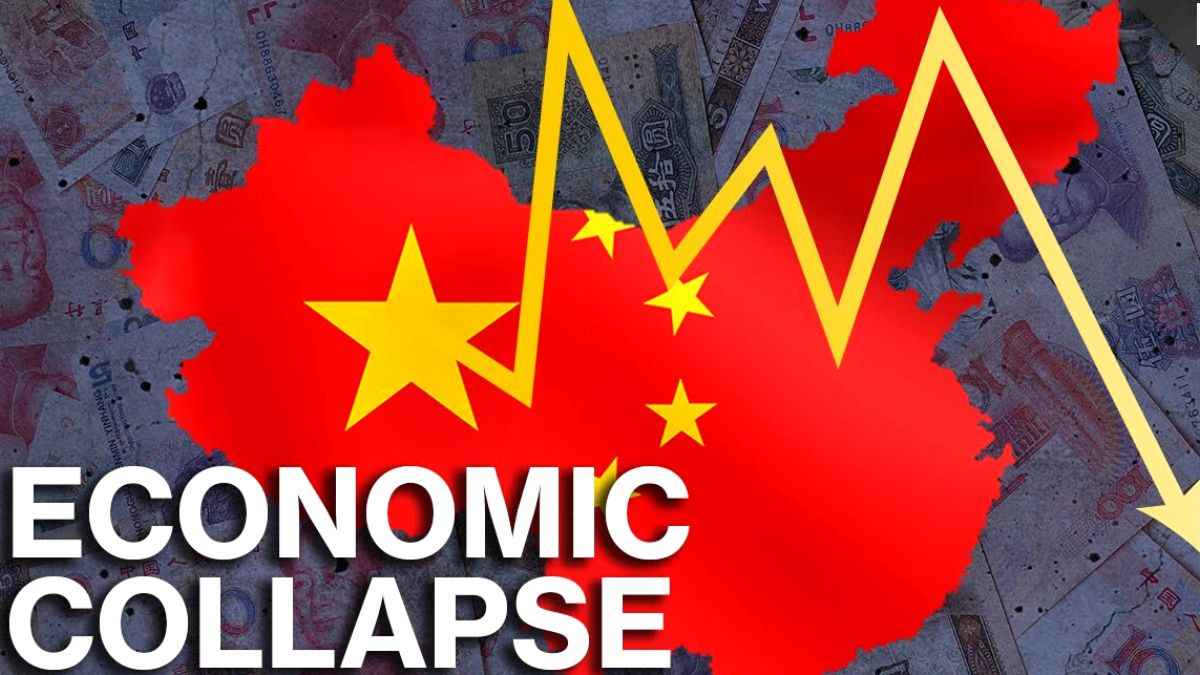 How Soon Will Cina Implodes ? Cina’s debt-based interest payments top a trillion yuan for first time
How Soon Will Cina Implodes ? Cina’s debt-based interest payments top a trillion yuan for first time
Total interest paid on bonds at local levels in China last year increased by nearly 21 per cent from 2021 as Beijing ramped up efforts to stabilise the nation’s economy
Analysts expect local governments to issue a record-high 7.5 trillion yuan worth of bonds this year, and much of that will go to infrastructure projects
The issuance of local government bonds is likely to rise to a record high of more than 7.5 trillion yuan this year, analysts say, as China will continue to rely on infrastructure spending to stabilise the economy.
Interest payments on local government debt in China exceeded a trillion yuan for the first time last year as Beijing called for enhanced efforts to steady the economy, and analysts say public debt in the world’s second-largest economy could continue to surge to an all-time high in 2023.
Local governments had to pay a total of 1.12 trillion yuan (US$165 billion) in interest on bonds in 2022, up from 928 billion yuan in 2021, according to data released by the Ministry of Finance on Sunday.
And a total of 3.67 trillion yuan worth of local government bonds will mature in 2023, according to financial data provider Wind.
The data, released by the Ministry of Finance, reflects the growing pressure of debt repayment among local governments. But since regional authorities often also borrow heavily off-budget, the overall debt to gross domestic product (GDP) could, in practice, be considerably higher than official data.
China’s debt-to-GDP ratio in the third quarter of 2022 rose from 273.1 per cent at the end of the second quarter to 273.9 per cent, or 0.8 percentage points, according to data released last year by the National Institution for Finance and Development.
The world’s second-largest economy has been struggling to recover after its abrupt abandonment of zero-Covid restrictions last month. There are signs that consumption and tourism picked up during the weeklong Lunar New Year holiday, and local governments have been ramping up efforts to restore manufacturing to boost their economies.
A total of 7.37 trillion yuan worth of local government bonds were issued in 2022, down from 2021’s 7.49 trillion yuan, Ministry of Finance data showed.
But the amount is likely to rise to a record high of more than 7.5 trillion yuan this year, according to Thunder Fund, a wealth-management company based in Shanghai, as China will continue to rely on infrastructure spending to stabilise the economy, leading to more sales of special-purpose bonds.
“In 2022, 4 trillion yuan worth of special-purpose bonds were issued for construction projects. Many projects will still need financial support after construction begins. This requires the total amount of special-purpose bonds to remain at a certain level [this year],” Thunder Fund said in a note on January 17.
Despite questions over the effectiveness of Beijing’s investment-led stimulus, analysts at the China Chengxin Credit Rating Group said the issuance of new special-purpose bonds is likely to stay at a high level, with more than 1 trillion yuan worth of such bonds expected to be issued in the first quarter of this year.
“The returns of special-purpose debt projects are low and are already declining. Under financial pressure, it is necessary to further improve the debt-repayment-guarantee mechanism to avoid the risk of default,” the Beijing-based rating agency said in a note on Saturday.
China-funded infrastructure across Africa force difficult decisions for its leaders
While Beijing has also pledged to keep financial risks under control by promoting a series of measures, including debt-restructuring among local governments, concerns over a prolonged downturn in China’s property market and rising geopolitical tensions last year triggered a sell-off in yuan-denominated assets.
Risks of defaults from local government debt – especially their off-budget lending through so-called local government financial vehicles – have also spooked investors.
Swiss bank UBS said in a note earlier this month that the potential for a hard landing in China’s property market, a capital exodus associated with currency depreciation, and slow structural reform progress, are among the key risks that need to be addressed by the Chinese government.
“Any government policies that do not adequately address these risks could result in a shock to the market,” UBS said.
“For example, an excess of stimulus policies could pose a risk to the transition from an investment-driven to a consumption-driven economy and increase the debt of [local] governments and state-owned enterprises.”




No comments:
Post a Comment
Note: Only a member of this blog may post a comment.